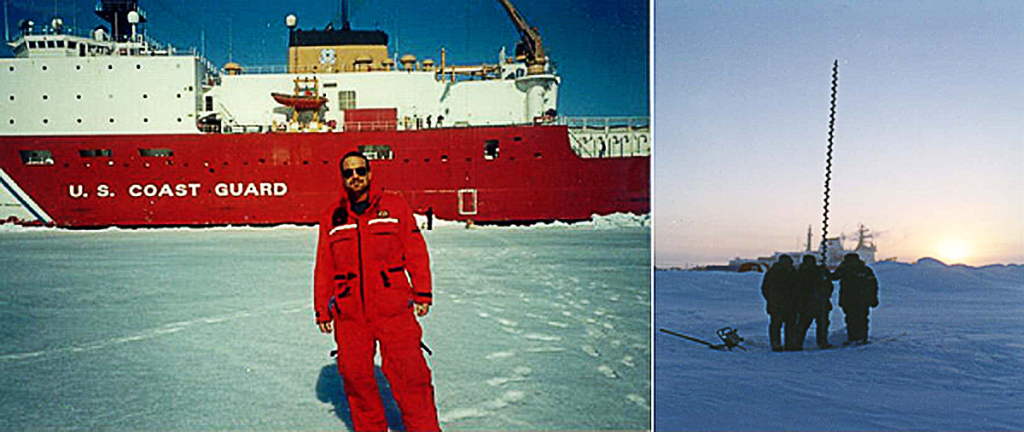Led by a Florida International University (FIU) scientist, a team of researchers will travel to the Arctic Ocean in 2015 to conduct experiments that will contribute to better understanding the effects of global climate change in the region.
Established by the U.S. GEOTRACES Science Steering Committee, the U.S. Arctic GEOTRACES initiative will be part of an international, multiple icebreaker effort—provided initially by the United States, Canada and Germany—and will include scientists from several nations who will conduct sampling of the Arctic Ocean.
Dr. David Kadko, professor and associate director of FIU’s Applied Research Center, will be chief scientist aboard the icebreaker USCG HEALY. The project will study how the carbon budget, geochemical cycles, and ecosystems in the Arctic respond to rapidly changing climate conditions.
The international program will be unprecedented in regional scope and scientific breadth. This marks the first time that grand-scale, coordinated geochemical measurements will be performed in the Arctic Ocean. Data gathered will help model feedback mechanisms and future trajectories of Arctic change, and measurements will establish a baseline against which future conditions can be compared.
GEOTRACES is an international program whose mission is to identify processes and quantify fluxes that control the distributions of key trace elements and isotopes in the ocean, and to establish the sensitivity of these distributions to changing environmental conditions. The GEOTRACES program has held several informational meetings around the world to update the scientific community on the planning process and solicit input from researchers. The meetings and workshops, funded in part by the National Science Foundation, have brought together some of the world’s top scientists interested in the biogeochemical cycles of trace elements and their isotopes to assist in planning the expeditions.

For additional information please contact: Dr. David Kadko (dkadko@fiu.edu)